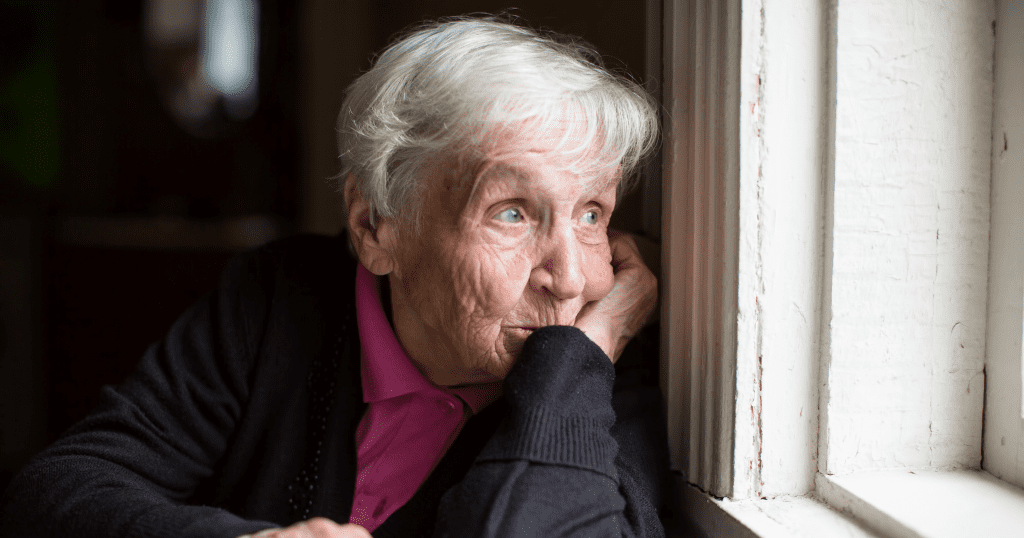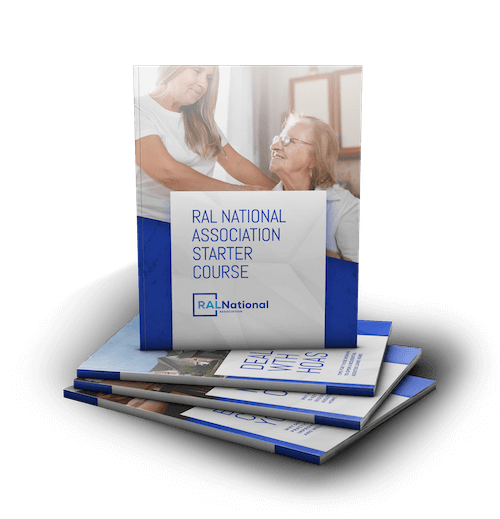[vc_row css_animation=”” row_type=”row” use_row_as_full_screen_section=”no” type=”full_width” angled_section=”no” text_align=”left” background_image_as_pattern=”without_pattern”][vc_column][vc_empty_space][vc_column_text]
The Residential Assisted Living National Association Always Seeks The Best Practices To Protect Homes From Unrealistic State Requirements.
[/vc_column_text][vc_empty_space height=”16px”][vc_column_text]However, it’s clear that the coronavirus has affected assisted living guidelines more seriously. Following these guidelines is a critical approach to keep seniors safe. Recently, new guidance released on visitation restrictions were put in place to prevent the spread of COVID-19.[/vc_column_text][vc_empty_space height=”16px”][vc_column_text]This week, the American Health Care Association/National Center for Assisted Living (AHCA/NCAL) released new active guidance. This important guidance has been enforced to prevent the COVID-19 virus from spreading into long-term care homes. It is similar to updated guidance released by the Centers for Medicare & Medicaid Services (CMS) on March 9, 2020, in the QSO 20-14 memo. This recommendation restricts all non-essential visits from assisted living homes and nursing home facilities.[/vc_column_text][vc_empty_space height=”16px”][vc_column_text]This includes restricting family visits, school groups, bands, and other outside group activities. As we learn more about how serious this virus is for the elderly, we believe this new guidance is critical to collectively care for residents in assisted living homes.[/vc_column_text][vc_empty_space height=”16px”][vc_column_text]In order to prevent the spread of the virus, caregivers must put the concern for residents and staff first. We also recommend the same five actions to help prevent the entry of COVID-19 into your residential assisted living homes. These recommendations should be put in place whether the coronavirus has been found in your surrounding community or not.[/vc_column_text][vc_empty_space height=”16px”][vc_column_text]
RECOMMENDATIONS TO PREVENT COVID-19 IN ASSISTED LIVING
[/vc_column_text][vc_empty_space height=”16px”][vc_column_text]
-
- Allow entry to only individuals who absolutely need entry,
- Restrict activities and visitors with potential for exposure,
- Actively screen individuals entering the building and restrict entry to those with respiratory symptoms or possible exposure to COVID-19,
- Require all individuals entering the building to wash their hands thoroughly and wear masks if available upon entry,
- Set up processes to allow remote communication for residents and others.
[/vc_column_text][vc_empty_space height=”16px”][vc_column_text]The National Center for Assisted Living (NCAL) and the American Healthcare Association (AHCA) have considered many variables of assisted living. These organizations recognize that assisted living communities vary in size, scope of care, and residents.[/vc_column_text][vc_empty_space height=”16px”][vc_column_text]As a result, this guidance includes suggestions for the limitation of visitors, including asking residents to encourage their loved ones not to visit. Residential assisted living homes should also limit the number of entrances and enact a sign-in policy that includes a pre-screening process at every entry point.[/vc_column_text][vc_empty_space height=”16px”][vc_column_text]
STATE-BY-STATE COVID-19 GUIDELINES
[/vc_column_text][vc_empty_space height=”16px”][vc_column_text]Upon the release of the NCAL and AHCA guidelines, the Minnesota Department of Health decided to take measures a step further. They indicated that individuals who have traveled or who experience any illnesses are not to come into assisted living facilities for any reason.[/vc_column_text][vc_empty_space height=”16px”][vc_column_text]As a result of states with varying guidelines, it is important to check with the health department of your assisted living home to be sure that you are in compliance. Also, as some states have been slow to recognize the threat that COVID-19 poses, it is always better to be on the safe side. Implementing precautions that are not yet mandatory for your state could go a long way to keep you residents and staff healthy.[/vc_column_text][vc_empty_space height=”16px”][vc_column_text]A bit of the rationale for additional recommendations and guidelines is based on the fatality rate of seniors in various states and the healthcare experience with COVID-19. Some residential assisted living homes must take dramatic action to limit individual visitations. These recommendations are also based on the fact that the mortality rate for residents is shockingly higher than national averages.[/vc_column_text][vc_empty_space height=”16px”][vc_column_text]A recent report from the World Health Organization estimates the mortality rate at 21.9% for those over 80. Young people with no underlying conditions can show no symptoms of sickness, however, evidence shows that many young people are already facing serious symptoms as well. Under the current CDC standards, there is a risk that visitors who seem healthy will enter residential assisted living homes and infect seniors with the virus.[/vc_column_text][vc_empty_space height=”16px”][vc_column_text]With the current shortage of supplies and staff, without extra precautions, these assisted living homes will have difficulties containing the spread of COVID-19. These added precautions are in place specifically to protect elderly individuals.[/vc_column_text][vc_empty_space height=”16px”][vc_column_text]
QUALITY CARE IN RESIDENTIAL ASSISTED LIVING DURING COVID-19
[/vc_column_text][vc_empty_space height=”16px”][vc_column_text]RALNA advocates for residential assisted living business owners and operators supporting them with legal expertise, continued education, national marketing, group purchasing power and a continual positive voice for the industry. Due to COVID-19, are assisted living regulations changing in your state?[/vc_column_text][vc_empty_space height=”16px”][vc_column_text]Make sure to check with your state health services department to be aware of your current regulation compliances. Also, keep up-to-date with CDC instructions and do everything that you can to keep your residents, their families, and you staff safe during this time. RALNA does its best to protect homes from unrealistic state requirements, but it’s clear that this virus is something we are all taking seriously, for the good of our seniors and the rest of our communities.[/vc_column_text][vc_empty_space][vc_separator css_animation=”fadeIn” type=”normal” color=”#eaeaea”][vc_empty_space][vc_row_inner row_type=”row” type=”full_width” text_align=”left” css_animation=””][vc_column_inner width=”1/6″][/vc_column_inner][vc_column_inner width=”2/3″][vc_single_image image=”99″ img_size=”medium” alignment=”center” qode_css_animation=””][vc_empty_space height=”10px”][vc_column_text]
If you found the information on this article valuable, you’ll find enormous benefits by becoming a member of our community. Visit this page to become a RALNA Member.
[/vc_column_text][/vc_column_inner][vc_column_inner width=”1/6″][/vc_column_inner][/vc_row_inner][vc_empty_space][/vc_column][/vc_row]











